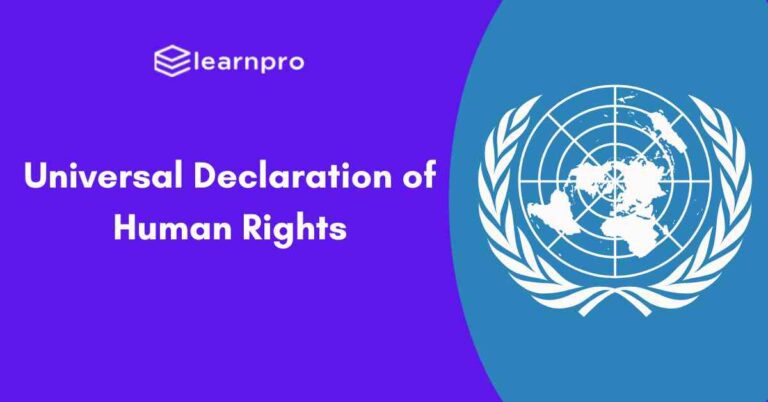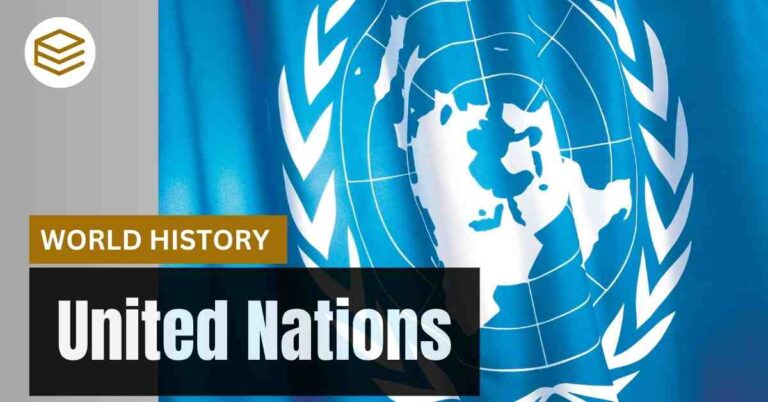January 25, 2026 7:46 am
Introduction
- NATO (North Atlantic Treaty Organization) is a military alliance based on the North Atlantic Treaty, signed on April 4, 1949, also known as the Washington Treaty.
- It consists of 30 countries, including the United States, Canada, and several Western European nations, aimed at providing collective security against the Soviet Union.
- This was the first peacetime military alliance between the United States and non-Western countries.
Objectives of NATO
- Political: Promotes democratic values and allows members to consult and cooperate on defense and security issues, building trust and preventing conflict.
- Military: Committed to peacefully resolving disputes but can use military power for crisis-management operations under Article 5 of the Washington Treaty or a United Nations mandate.
Relevance of NATO in Contemporary Times
- Adapts to a changing security environment, dealing with threats like Russia’s invasion of Ukraine, terrorism, cyberattacks, and global instability.
- Key support for Ukraine’s independence and territorial integrity.
- Significant role in the fight against ISIS and support for the Global Coalition to Defeat ISIS.
- Played a role in the COVID-19 crisis, protecting military personnel and aiding in the delivery of medical supplies.
NATO Expansion and Russia
- Due to the Russia-Ukraine war, Finland and Sweden have applied for NATO membership, changing Europe’s geopolitical landscape.
- Russia views NATO expansion as a direct threat and demands that NATO return to its pre-1997 military status, opposing any further expansion.
Impact of NATO Expansion on Russia
- Loss of Influence: NATO’s growth has reduced Russia’s influence in Eastern Europe, perceived as encirclement.
- Deteriorating Relations: Expansion has strained Russia-NATO relations, causing distrust and heightened tensions.
- Arms Control Challenges: NATO’s growth negatively impacts disarmament efforts and has led to more military deployments in the region.
- Regional Instability: Contributes to military tensions and confrontational dynamics in Eastern Europe.
Issues with NATO
- Russia Relations: NATO’s expansion and increased military presence have worsened tensions with Russia.
- Terrorism and Extremism: Challenges remain in countering terrorism within and beyond member states.
- Defense Spending: Criticism over some members not meeting spending commitments; the USA shoulders around three-fourths of NATO’s budget.
- Global Power Shifts: The rise of powers like China complicates NATO’s strategic planning.
- Internal Conflicts: Differing views among members on terrorism, Russia, and European security.
- Undefined Mission: Lack of a clear, unified mission affects the alliance’s strategic direction
NATO Current Affairs: November 2024 Overview
1. North Korea’s Troop Deployment to Russia
- Significant Development: NATO has verified that approximately 10,000 North Korean troops have been deployed to Russia’s Kursk region. This marks a notable escalation in North Korea’s involvement in the ongoing Ukraine conflict.
- Security Threat: NATO Secretary-General Mark Rutte has raised concerns about this deployment, emphasizing that it poses a serious threat to both European and Indo-Pacific security.
- U.S. Confirmation: The U.S. Defense Department has corroborated NATO’s findings, adding that North Korea is also supplying ammunition and missiles to Russia. In exchange, Russia is reportedly helping North Korea evade international sanctions.
- Strategic Implications: This alliance between North Korea and Russia is viewed as a concerning development that could destabilize security dynamics in multiple regions.
2. NATO’s Stance on Ukraine’s Membership
- Ukraine’s NATO Ambitions: Ukrainian President Volodymyr Zelenskyy has presented a “victory plan” seeking accelerated NATO membership to ensure Ukraine’s protection amid the Russian invasion.
- NATO’s Position: Despite Ukraine’s request, NATO has refrained from promising immediate membership. Secretary-General Mark Rutte stated that the alliance needs more time and details, citing unresolved political and military issues that must be addressed.
- Focus on Current Support: NATO is currently prioritizing efforts to help Ukraine reclaim territory and improve its position for potential peace negotiations. The emphasis remains on providing military and strategic support rather than fast-tracking membership.
3. 75th Anniversary of NATO
- Washington Summit: NATO leaders convened in Washington, D.C., to celebrate the 75th anniversary of the alliance. The summit was a platform for reflecting on NATO’s history and future role in global security.
- Key Discussions: Leaders addressed critical issues, including the war in Ukraine, the rise of far-right movements in Europe, and the need for greater defense spending among member nations.
- Future Outlook: Discussions also focused on NATO’s strategic adaptations in response to evolving global power shifts, especially in the context of a more complex and multipolar international environment.
4. Defense Spending Trends in NATO
- Poland’s Defense Budget: Poland is expected to lead NATO in defense spending relative to its GDP, allocating 4.7% of its GDP in 2024. This significant increase in defense expenditure comes in response to security concerns stemming from Russia’s aggression in Ukraine. However, there are concerns about the sustainability of such high defense spending.
- Canada’s Defense Challenges: In contrast, Canada faces challenges in meeting NATO’s defense spending target of 2% of GDP. A parliamentary report indicates that Canada would need to double its current defense budget by 2032-33 to achieve this target, which could conflict with other fiscal priorities, such as reducing the national deficit.
5. NATO’s Global Engagement
- Briefing on North Korea: A high-level delegation from South Korea will brief the North Atlantic Council on North Korea’s troop deployment to Russia. This engagement highlights NATO’s commitment to collaborating with global partners and addressing new security threats.
- International Cooperation: NATO’s proactive approach in consulting with non-member states like South Korea underscores its broader strategy of international security cooperation beyond the Euro-Atlantic region.
6. Leadership Perspectives on NATO’s Future
- Mark Rutte’s Views: NATO Secretary-General Mark Rutte discussed the alliance’s importance in ensuring global security and maintaining American safety. He expressed confidence that NATO’s relevance would remain strong, even in the event of political shifts, such as a possible second term for former U.S. President Donald Trump.
- Concerns and Confidence: Despite uncertainties about future U.S. leadership, Rutte emphasized NATO’s indispensable role and its ability to adapt to changing geopolitical landscapes.




[…] The North Atlantic Treaty Organization (NATO) […]